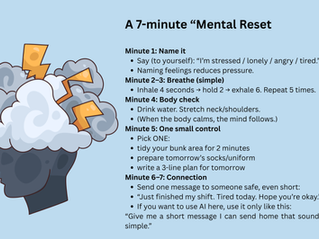Loneliness Onboard
- IMEQ CENTER

- Apr 15, 2024
- 4 min read

Loneliness is a complex emotion that signifies a gap between desired and actual social connections. It's not merely about being physically alone; one can feel lonely even in a crowd if they don't feel understood, valued, or connected to others around them. This emotion can have profound effects on both mental and physical health, contributing to conditions like depression, anxiety, and even heart disease.
Factors Contributing to Loneliness
Social Isolation: Physical separation from friends, family, and communities is a primary contributor to loneliness.
Quality of Relationships: Low-quality or superficial relationships can lead to feelings of loneliness, even if a person has many social contacts.
Life Transitions: Major life changes, such as moving to a new city, changing jobs, or experiencing the loss of a loved one, can trigger loneliness.
Social Skills and Anxiety: Individuals with less confidence in their social skills or those who experience social anxiety may struggle to form and maintain meaningful connections.
Perceived Social Support: The perception that support is not available or that one's social needs are not being met can contribute to feelings of loneliness.
Risk Factors for Loneliness
Age: While loneliness can affect anyone at any age, young adults and the elderly are particularly vulnerable.
Mobility and Health Issues: Physical limitations can restrict one’s ability to engage in social activities, increasing the risk of isolation.
Geographical and Occupational Isolation: Jobs that require physical separation from one's social network, such as those of seafarers, significantly increase the risk of loneliness.
Personality Traits: Introversion, shyness, and other personality traits may make it more challenging for individuals to initiate and maintain social connections.
Fighting Isolation Onboard: The Role of a Support System
For seafarers, the unique challenges of their profession make combating loneliness crucial for their well-being. A strong support system onboard can mitigate feelings of isolation by providing emotional and social support. Here’s how a seafarer can fight isolation with and create their own support system:
Foster Connections with Crew Members: Building strong relationships with fellow crew members can create a sense of community and belonging. Engage in conversations, share personal stories, and participate in group activities.
Utilize Technology: Leverage technology to maintain connections with loved ones. Regular video calls, messaging, and social media can help bridge the physical distance.
Participate in Onboard Activities: Engaging in organized social activities, fitness challenges, or hobby groups onboard can facilitate connections with others who share similar interests.
Seek Out Peer Support: Form or join peer support groups where seafarers can share their experiences and feelings in a safe and understanding environment.
Access Mental Health Resources: Utilize any available mental health resources provided by the employer, such as counseling services, wellness programs, or stress management workshops.
Develop Personal Resilience: Invest time in personal development activities, such as reading, learning a new skill, or practicing mindfulness and meditation. These activities can enhance personal resilience and provide a sense of purpose and fulfillment.
Volunteer for Crew Welfare Committees: Being actively involved in crew welfare initiatives cannot only provide a sense of purpose but also improve the onboard environment for everyone.
What Shipping Companies Can Do
Implement Wellness Programs: Shipping companies can develop comprehensive wellness programs that address both the physical and mental health needs of their crews. This includes providing resources and training on managing loneliness and stress.
Improve Onboard Connectivity: Investing in better onboard internet connectivity allows seafarers to maintain regular contact with their families and friends, significantly reducing feelings of isolation.
Mental Health Days and Support Services: Introduce mental health days and ensure access to professional mental health support for crew members who are struggling.
Feedback and Continuous Improvement: Companies should regularly solicit feedback from their crew about their living and working conditions onboard and be open to making continuous improvements.
While these strategies can be effective, it's important for shipping companies and industry stakeholders to continuously adapt and respond to the changing needs of seafarers to effectively combat loneliness and improve the overall well-being of their crew.
Loneliness Quiz
For each statement, decide whether it's "Often True," "Sometimes True," or "Rarely True" for you. Take your time and answer honestly.
I feel that I lack companionship.
Often True
Sometimes True
Rarely True
I feel left out.
Often True
Sometimes True
Rarely True
I feel isolated from others, even when I'm with people.
Often True
Sometimes True
Rarely True
I find myself longing for more meaningful connections with others.
Often True
Sometimes True
Rarely True
My social interactions are superficial and do not satisfy my need for connection.
Often True
Sometimes True
Rarely True
I feel that my relationships with others are not meaningful.
Often True
Sometimes True
Rarely True
I am unhappy being so withdrawn from others.
Often True
Sometimes True
Rarely True
People are around me, but I don't feel connected to them.
Often True
Sometimes True
Rarely True
I feel no one truly knows me well.
Often True
Sometimes True
Rarely True
I am unable to reach out and communicate my feelings effectively to others.
Often True
Sometimes True
Rarely True
Scoring
Often True: This might indicate areas where you feel particularly lonely or disconnected.
Sometimes True: Indicates occasional feelings of loneliness or disconnection.
Rarely True: Suggests that in these areas, you generally feel connected and supported.
Reflecting on Your Score
Mostly "Often True": You may be experiencing significant loneliness. It could be helpful to reach out for professional support or to trusted individuals in your life.
Mixed Responses: Occasional feelings of loneliness are normal, but if you're often feeling disconnected, consider what changes might help you feel more connected.
Mostly "Rarely True": You likely have a sense of connection and support in your life, but continue to nurture your relationships and reach out when you need support.
Author: Clinical psychologist Penelope Robotis





































































































for seafarers, the unique challenges of their profession make combating loneliness